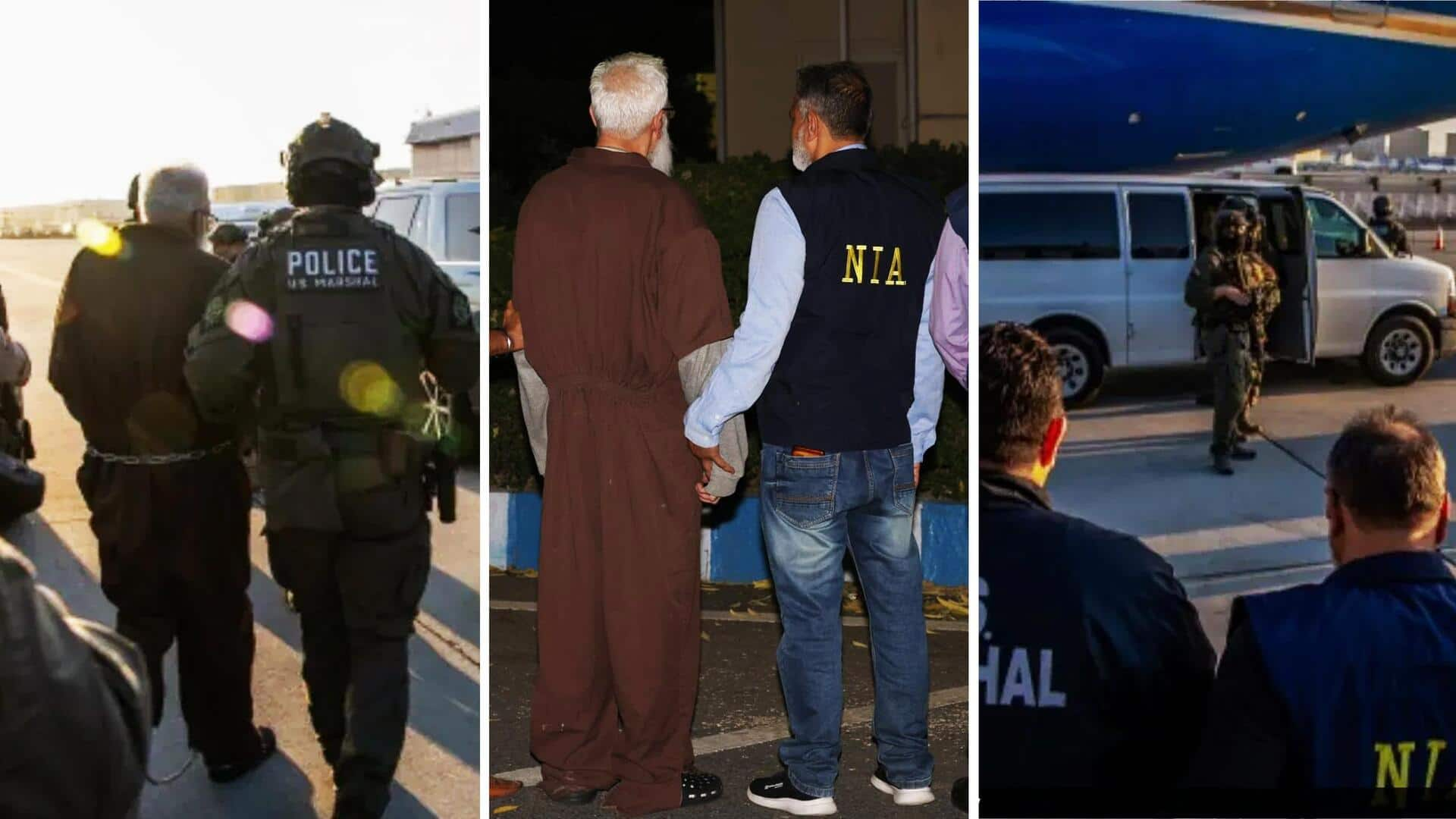
US issues statement after 26/11 accused handed over to India
What's the story
The United States has welcomed the extradition of Pakistani-Canadian terror accused Tahawwur Hussain Rana to India.
Rana is a key accused in the 2008 Mumbai terror attacks that killed around 170 people, including six Americans.
US Department of State spokesperson Tammy Bruce confirmed the extradition of Rana and reiterated America's commitment toward assisting India in its fight for justice for the victims.
Commitment reaffirmed
US stands by India in fight against terrorism
Bruce stressed on the importance of Rana's extradition, terming it a step toward justice.
"The United States has long supported India's efforts to ensure those responsible for these attacks are brought to justice."
"As President Trump has stated, the United States and India will continue to work together to combat the global scourge of terrorism," she added.
Justice department's stance
US Department of Justice supports extradition
The US Department of Justice echoed Bruce's sentiments, calling Rana's extradition a "critical step toward seeking justice."
He faces 10 criminal charges over his alleged involvement in planning and executing the Mumbai attacks.
These were carried out by Pakistan-based terror group Lashkar-e-Taiba (LeT).
After the attacks were complete, Rana allegedly told David Coleman Headley, another accused in the 26/11 attacks, that the Indians "deserved it," the Justice Department said.
Twitter Post
Read the full statement here
The US Department of Justice issues a statement after 26/11 terror attacks accused Tahawwur Rana was extradited to India from the US.
— ANI (@ANI) April 11, 2025
It reads, "The United States on Wednesday extradited convicted terrorist Tahawwur Hussain Rana, a Canadian citizen and native of Pakistan, to… pic.twitter.com/MSJcwzj2tI
Extradition process
Rana's extradition follows years of legal proceedings
The department also said that in an intercepted conversation with Headley, Rana allegedly commended the nine LeT terrorists who were killed during the attacks, saying "[t]hey should be given Nishan-e-Haider"—Pakistan's "highest award for gallantry in battle."
Rana's extradition comes after several years of diplomatic negotiations and legal battles between India and the US.
His last bid to stop the process was denied by the US Supreme Court, clearing the way for Indian authorities to bring him back.
Health concerns
Rana's health claims rejected by US Supreme Court
Rana had argued that the extradition would put his life at risk. He cited health concerns and alleged threats of torture.
According to him, he was suffering from serious medical conditions, including heart disease, kidney problems, Parkinson's, and a possible cancer diagnosis.
He has been sent to the custody of the National Investigation Agency (NIA), India's counter-terrorism agency, for 18 days.